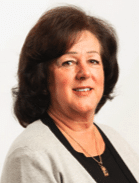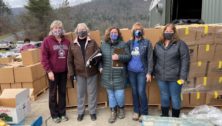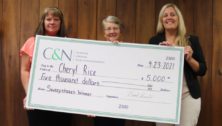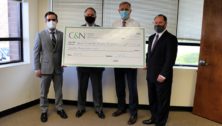Budgeting for Homeownership: Additional Costs Beyond the Down Payment

Congratulations! You’ve found the perfect house and are ready to make an offer. But before you place that bid, there are some additional expenses to consider that go beyond the down payment. To ensure a smooth transition into your new home and avoid any financial surprises, let’s explore some other expenses to factor into your homebuying budget.
Upfront Costs
Closing Costs: These fees cover the nitty-gritty of finalizing the purchase. Expect to pay two to six percent of the purchase price for appraisals, origination fees, title insurance, and inspections.
Down Payment: While a 20 percent down payment is ideal, there are numerous options available with a lower down payment. However, keep in mind that a smaller down payment often means private mortgage insurance (PMI), adding to your monthly payment.
Moving Costs: From hiring movers to renting a truck and the possibility of temporary storage, factor in the cost of getting your belongings to your new place. Consider getting quotes from different movers, planning a moving sale, borrowing a friend’s truck, or renting a trailer to help offset or reduce costs.
Reserves: Some types of loans, like some construction loans, may require extra cash on hand to cover unexpected costs in the first few months of ownership. On a regular mortgage, certain programs require reserves, which are essentially the principal, interest, tax, and insurance.
Ongoing Costs
Mortgage Payment: This will likely be your biggest monthly expense. Factor in principal, interest, homeowners insurance, private mortgage insurance (PMI) if applicable, and homeowners association dues (HOAs) in some areas. Your payment is influenced by many factors so it’s important to work with a local, trustworthy lender who can customize a loan structure to best suit you.
Property Taxes: Property taxes (often included in escrow as part of your mortgage payment) are levied by your local government and go towards funding public services. Tax rates vary depending on location and property value. To find the tax rate in your area, visit your county assessor’s website.
Homeowners Insurance: This protects your investment against unforeseen events like fire, theft, and natural disasters. Rates depend on your home’s value, location, rebuild cost, your claim history, certain risk factors, and even the breed of dog you own (bite risk). Consider getting quotes from multiple insurers to find the best rate.
Homeowner’s Association (HOA) Fees: If you live in a community with an HOA, expect to pay monthly or annual dues that cover shared common area maintenance and amenities.
Utilities: Expenses like electricity, water, gas, trash collection, and internet will fluctuate depending on the home’s size, energy efficiency, usage, and local rates.
Maintenance and Repairs: Owning a home means things will break or wear out occasionally. Budget for regular maintenance and unexpected repairs. A good rule of thumb is to set aside one to three percent of your home’s purchase price annually for maintenance.
Don’t Forget
Improvements and Upgrades: You might want to make some changes to personalize your new space. Budget for potential renovations or cosmetic upgrades. Be sure to consider permit costs if they’re required in your locality.
Furnishing: You might need to buy furniture or appliances to fit your new home. For budget-friendly options, consider shopping thrift stores or online marketplaces.
Homeownership is a dream for many and, with careful planning, it can be a financially sound and rewarding experience. C&N’s website has dozens of handy resources and calculators to help you along the way. Connect with your local C&N mortgage lender to create a realistic homeownership plan so you can confidently enjoy the journey to owning your new home.
Learn more about C&N Bank and its various banking solutions, including checking accounts, savings accounts, mortgages, business loans, and more.
__________________

Linda Gordner is a Regional Mortgage Loan Originator at C&N. Gordner is responsible for originating residential mortgages, including purchases, refinance, new construction, and land loans in the Lycoming and surrounding counties. She has over 48 years of banking experience, including 21 years with C&N. Gordner has a wealth of knowledge in the mortgage industry and enjoys helping her clients with their financing needs. Gordner’s office is in C&N’s Muncy Branch located at 3461 State Rt. 405.
Connect With Your Community
Subscribe for stories that matter!
"*" indicates required fields






























